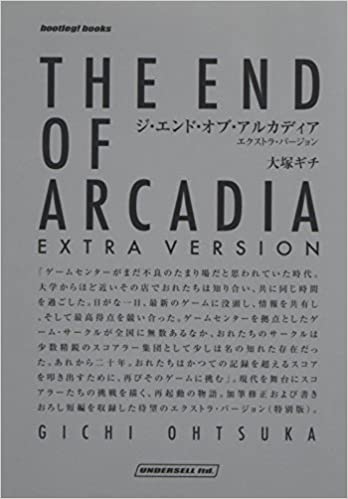I found difficult to find the proper resources that would have enabled me to reconstruct the appropriation of the space of game centres by players from a historical perspective in the context of my doctoral dissertation. Few audiovisual materials documenting the practices of gamers in arcades exist, and only a fraction of them adopts an honest perspective instead of reaffirming the videogames-are-a-bad-influence discourse so prevalent in the 1980s and 1990s. This was one of the important factors that led me to focus my efforts on the analysis of contemporary practices and behaviour which I could more easily observe and record.
Back then, it had not occurred to me that I could find such information in novels.
Arcade culture has changed rapidly in Japan since the 1990s, and many players who found comfort in these types of spaces now look back on the past with nostalgia. While game centres still exist, there is a distinct sense that part of their culture, which was directly tied to the games of the time and their affordances, has now been mostly lost with the arrival of networked machines. The author and editor Ōtsuka Gichi took upon himself to document much of that culture. In the process, he created valuable resources (albeit slightly romanticized) in the form of two novels that both chronicle the game centre scene from different insider angles: the Virtua Fighter subculture in Tokyo Head 1993-1994 and the ethos of the « scoreler » in The End of Arcadia.
Needless to say, there is no sign of either of these works outside of Japan, but evidence suggest that they were positively received by its public. Tokyo Head was adapted as a Broadway-style musical in 2015. Both titles now command the impressive price tag of 15,000 yen on Amazon, turning them into collector items. The End of Arcadia is particularly interesting to me as it carries the metaphor of arcades as a form of utopia, an ideal world outside of reality, which ressonates with my understanding of their social function as sites of escapism away from social norms and pressure.
Knowledge of these works are important for anyone looking to study arcade gaming culture in Japan. In the spirit of dialogue, I translated the prologue of The End of Arcadia to provide a sample its tone and overall direction. Enjoy!

THE END OF ARCADIA: EXTRA VERSION
Arcadia. Utopia. Origin of the word « arcade ».
This was a time when game centres were still seen as the hotbeds of delinquency. All of us were acquaintances from the arcade located near the university. We killed time there together. All day long, we threw ourselves at the latest video games, shared tips and info, and eventually chased high scores. The four of us all came from different walks of life and our personalities were completely different, but, somehow, we all got along. At some point, we started to use the same high score tag, which turned into the name of our game club, which was derived from the given name of our appointed representative member. Amongst the countless videogame circles based in one of the country’s many game centres, ours had somewhat of a reputation of being an elite « scoreler » club.
